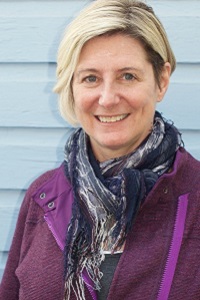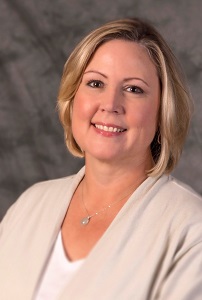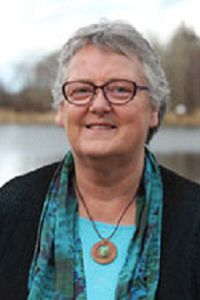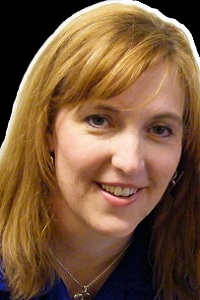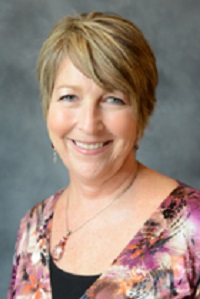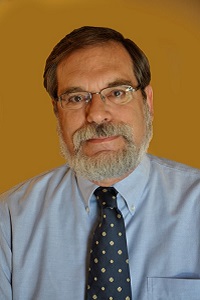Featured Speakers
Anita Wager (Pre-K)
Dr. Wager's research focuses on teacher education that supports culturally relevant and socially just mathematics practices in early childhood. She is particularly interested in practices that draw on children's multiple mathematical resources including mathematics (and other) experiences from homes, communities, and in play. In her work with teachers to explore mathematics learning in play-based classrooms Dr. Wager examine how teachers can plan activities, prepare the environment, and notice mathematical practices children engage with in play. In collaboration with Dr. Beth Graue and Dr. Tom Carpenter, she is in the 5th year of an NSF funded project to study a professional development program for public preK teachers that weaves together developmentally and culturally responsive early mathematics and reciprocal funds of knowledge. With colleagues from other institution Dr. Wager is working on another NSF funded project to study student access and agency to mathematics learning. Dr. Wager teaches mathematics courses for pre-service early childhood teachers and graduate courses in mathematics education and social justice.Kay Middleton (Primary)
Catharina "Kay" Middleton, Ph.D., is an Assistant Professor of Mathematics Education at East Carolina University. A former elementary teacher, Dr. Middleton has held positions as a coach, grant coordinator, and district specialist in K-8 mathematics and science. She received her Ph.D. in Culture, Curriculum, and Change with a concentration in Mathematics Education from the University of North Carolina at Chapel Hill. Her research focuses on factors that influence instructional practice and students' opportunity to learn, including teachers' use of formative assessment, literacy practices in mathematics and science, and students' development of written computation.Ruth Parker (Intermediate/Middle School)
Ruth Parker is a former classroom teacher and has spent over 20 years leading professional development for math teachers in grades K-14. She is currently the CEO of the Mathematics Education Collaborative, preparing a next generation of mathematics teacher leaders for Washington State. Ruth received her master's degree and her Ph.D. from the University of Oregon. She is one of the original creators of Number Talks, and has extended her work in her recent publication, Making Number Talks Matter (Stenhouse, 2015). Her work is critical to helping elementary through post-secondary math students build their number sense and is important in math interventions.Pamela Weber-Harris (Middle/High School)
Pamela Weber Harris is the author of Building Powerful Numeracy for Middle & High School Students and the new Lessons & Activities for Building Powerful Numeracy. A former secondary mathematics teacher, Pam currently teaches at The University of Texas, is a K-12 mathematics education consultant, a T³ (Teachers Teaching with Technology) Instructor, and an author and coauthor of several professional development workshops. Pam presents frequently at local and national conferences. Her particular interests include numeracy, technology, assessment, lesson design, and vertical connectivity in curricula in schools K-12.Ted Hodgson (High School)
Ted Hodgson is a professor of Mathematics Education at Northern Kentucky University, where he teaches courses in mathematics, statistics, and mathematics education. Prior to NKU, he served as a professor at Montana State University and Indiana University, as well as a middle grades and secondary mathematics teacher. He recently served as an editor of the NCTM Mathematics Teacher and is currently a member of the Kentucky Committee for Mathematics Achievement. Dr. Hodgson is active in outreach to schools and teachers throughout Kentucky, having directed state and national-level grants focusing on the teaching and learning of algebra (2007-2009) and the development of pedagogical content knowledge (2009-2012). His current project (2013-2017) focuses on the flipped mathematics classroom and the development of teacher-leaders.Jennifer Bay-Williams (Intermediate)
Jennifer Bay-Williams loves living and working in Kentucky. She has collaborated with KCM (and others) on the launch of a literature and mathematics web site, SMART Books (along with partners around the state). Jenny is perhaps best known as one of the authors of the Teaching Student Centered Mathematics series and Elementary and Middle School Mathematics: Teaching Developmentally (with John Van de Walle and others). She has also written books incorporating children's literature, infusing financial literacy, making mathematical connections and understanding addition and subtraction. She is a currently a member of the NCTM Board of Directors. She is a former president of the Association of Mathematics Teacher Education and served on the TODOS: Mathematics for All Board of Directors. She frequently presents at conferences and districts, advocating for effective mathematics teaching and supporting math teacher-leaders. Jenny received her Ph.D. in Curriculum and Instruction at the University of Missouri-Columbia and currently is a professor and department chair at the University of Louisville. She began her career teaching at all levels, K-12, in Missouri and Lima, Peru.**Special thanks to Pearson for making Jennifer's participation possible!**
Steve Leinwand (General)
Steve Leinwand is a Principal Research Analyst at AIR and has over 35 years of leadership positions in mathematics education. He currently serves as mathematics expert on a wide range of AIR projects that turn around schools, improve adult education, evaluate programs, develop assessments and provide technical assistance. Leinwand's work at AIR has included leadership and change instigator in AIR's school turnaround work in Hazelwood, MO, East St. Louis, IL and Alexandria, VA; developing specifications and an Algebraic Reasoning item pool for the NCES High School Longitudinal Study; serving as Implementation Task Leader for the IES Mathematics Professional Development Impact Study; co-authoring "hat the United States Can Learn from Singapore' World-Class Mathematics System (and what Singapore can learn from the United States)"; and co-authoring a comparison of the 2007 Grade 3 assessments administered in Hong Kong and in Massachusetts. In addition, Leinwand has provided school and district-level support and technical assistance for the General Electric Foundation's Ensuring Futures in Education project and the Microsoft Math Partnership, As part of AIR's assessment program, Leinwand has overseen the development and quality review of multiple-choice and constructed response items for AIR' contracts with Ohio, Hawaii, Delaware, Minnesota, South Carolina and the Smarter Balanced Assessment Consortium.Before joining AIR in 2002, Leinwand spent 22 years as Mathematics Consultant with the Connecticut Department of Education where he was responsible for the development and oversight of a broad statewide program of activities in K-12 mathematics education including the provision of technical assistance and professional development, the evaluation of Title 1 and K-12 mathematics programs, the assessment of student achievement and teacher competency, and the coordination of statewide mathematics programs and activities. Steve has also served on the NCTM Board of Directors and has been President of the National Council of Supervisors of Mathematics. Steve is also an author of several mathematics textbooks and has written numerous articles. His books, Sensible Mathematics: A Guide for School Leaders and Accessible Mathematics: 10 Instructional Shifts That Raise Student Achievement were published by Heinemann in 2012 and 2009 respectively.
